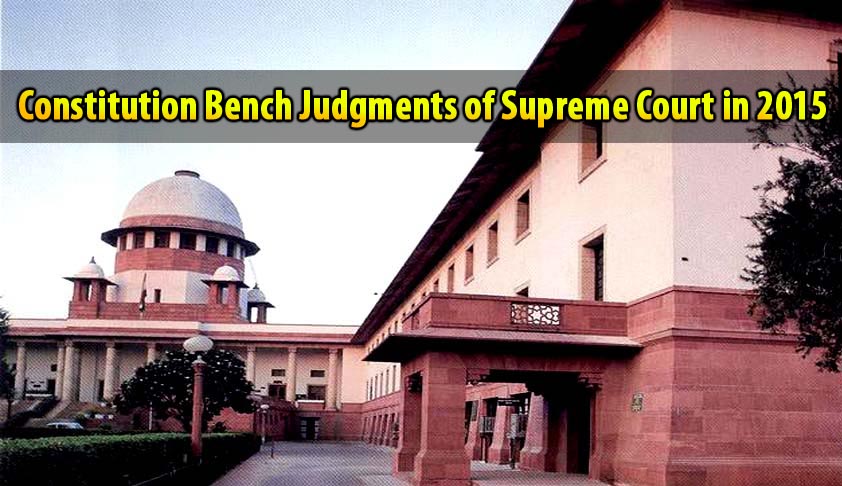- Home
- /
- Cover Story
- /
- Constitution Bench Judgments of...
Constitution Bench Judgments of Supreme Court of India in 2015
Ashok KM
1 Jan 2016 9:45 AM IST
A bench of at least five judges of the Supreme Court which sit to decide any case “involving a substantial question of law as to the interpretation of the Constitution of India” is popularly known as ‘Constitution bench’. Largest ever Constitution bench comprising of 13 judges of the Apex Court had heard the famous Keshavananda Bharati case. More than 75% of the Constitution...
Tags
Constitution Bench Judgments 2015Constitutionality of National Company Law TribunalMadras Bar Association vs. Union of IndiaNational Judicial Appointment Commission Act unconstitutionalRajiv Gandhi killers CaseSupreme Court Advocates-on-Record Association vs. Union of IndiaSupreme Court of IndiaUnion of India vs. V. Sriharan @ Murugan
Next Story



